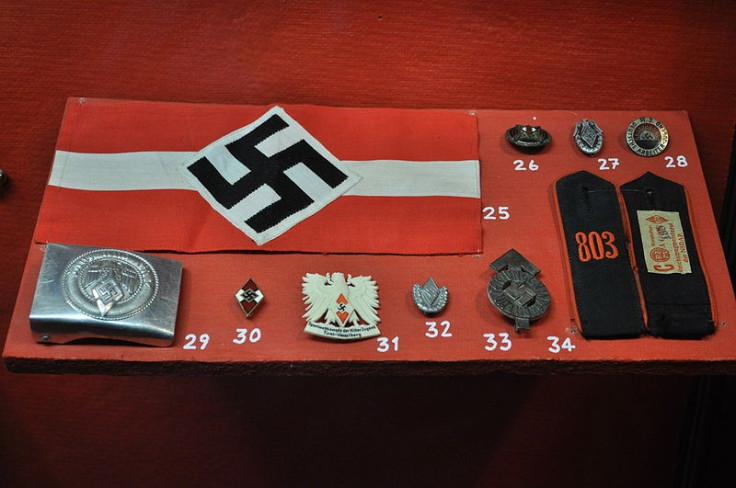Nazi Relic Hunters Desecrate War Graves to Feed Obsessive UK Collectors
Nazi memorabilia dug up from German soldiers' graves and sold in Britain

Britain is home to an underground market of Nazi relics worth several million pounds and fed by organised crime.
A report by The Times claims that criminal gangs raid the graves of German soldiers who died in the Second World War and steal personal effects bearing the Nazi insignia to selling on the internet.
The artefacts range from dog tags to pieces of tanks, guns and pins, and most of the depradation takes place in eastern Europe - where thousands of German soldiers lost their lives retreating from the Russian front in 1942.
"Often staff discover that graves have been looted. Worst is the lack of dog tags, without which we cannot identify the soldiers," said Fritz Kirchmeier, president of the German War Graves Commission, a charity working for the upkeep of German war graves.
"The Russians have no regard for the Germans. In eastern Europe it's a very big business. It's almost mafia-run," he added.
No UK ban
A substantial proportion of the plundered items end up in Britain, as unlike in France and Germany, the sale of Nazi memorabilia is not illegal in the UK.
The effects can be bought on niche military memorabilia sites such as the US-based bluegrayrelics.com and militarywarehouse.com, as well as on mainstream portals such as Ebay, and at town fairs.
It is claimed that the War and Peace military fair in Paddock Wood, Kent is a particularly popular destination for Nazi relic hunters.
Buyers are not necessarily neo-Nazis. Far right extremists are more interested in having brand-new replicas of third Reich objects than in buying original artefacts, according to The Times.
In fact, collectors are more likely to be history buffs than extreme nationalists.
"With the relics, what you are doing is buying a piece of history," said Virginia, 20, who spent hundreds of pounds on a Hitler Youth dress dagger.
"I would look at every little dent in the knife and with a magnifying glass, try to make out the maker's name. I would hold it thinking of who may have owned it," she told The Times.
© Copyright IBTimes 2025. All rights reserved.






















